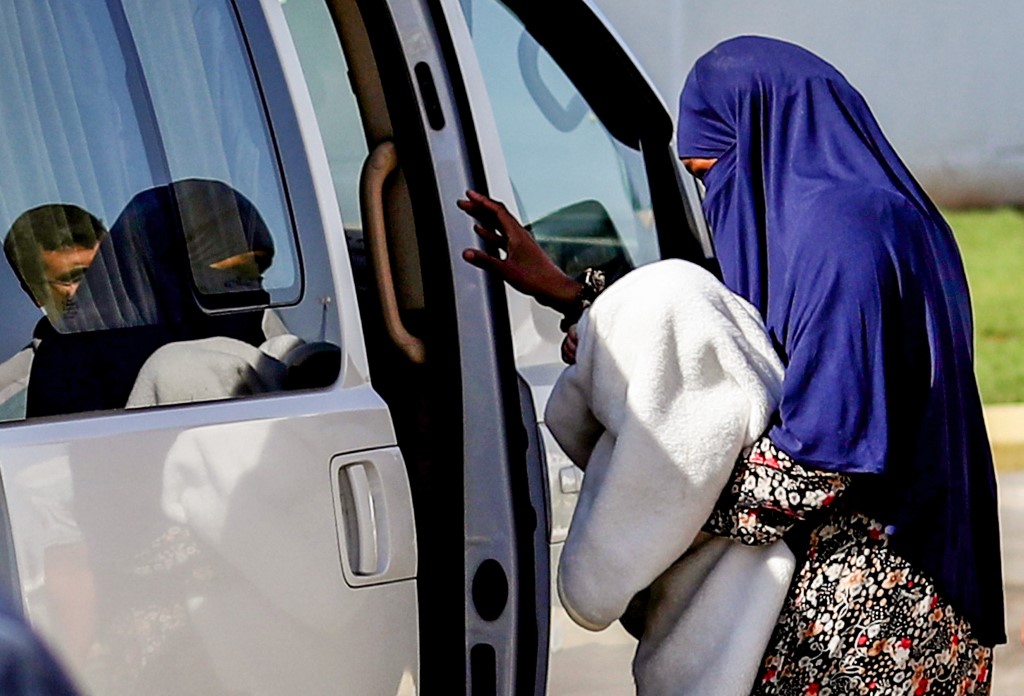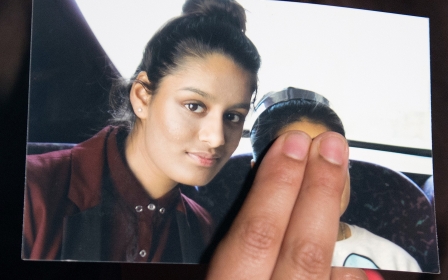Europe must face its responsibility to repatriate Syria's foreign fighters

On Monday, Turkey announced the beginning of a repatriation process of foreign fighters currently in deportation centres.
The travel plans for seven German nationals have been “completed”, and they will be deported on Thursday, said Turkey’s interior ministry spokesperson, Ismail Catakli. A US foreign fighter has already been deported, but is currently stranded in the no man's land between Turkey and Greece.
Stay informed with MEE's newsletters
Sign up to get the latest alerts, insights and analysis, starting with Turkey Unpacked
Last week, Interior Minister Suleyman Soylu said Turkey was “not a hotel” for captured Islamic State (IS) group foreign fighters, in a bid to pressure European states to take back their nationals. This came weeks after Turkey launched a military operation to push back what it perceives as a “terror corridor” along the Syrian border, prompting a White House statement that Turkey would “now be responsible for all ISIS fighters” in the vicinity.
Who bears responsibility?
With the debate over foreign fighters in full swing, questions have been raised over who ultimately bears responsibility. There’s no time for ducking this responsibility; the most pragmatic solution is repatriation by each concerned state.
This may be a difficult pill for the public to swallow, but we need to embrace pragmatism to move beyond the current limbo. The debate is broader than just alleged foreign fighters: also caught in this quagmire are doctors, journalists, humanitarian workers and innocent children stranded in dysfunctional camps with few resources.
Ad hoc administrative justice fails to attain the basic principles of impartiality and independence
European states must stop taking a “free-for-all” approach and work towards a unified process. Citizenship stripping has already taken place in some cases, and based on what we’ve seen during the “War on Terror”, this could be a precursor for targeted killings.
States are turning a blind eye, exporting “justice” to Syrian Democratic Forces (SDF) detention facilities in northeastern Syria, or allowing suspects to be tried in group courts. This is simply not the answer.
Ad hoc administrative justice fails to attain the basic principles of impartiality and independence. Handling any perceived international threat requires effective cooperation between states, including intelligence-sharing on border security. Rehabilitation must also have some level of grassroots involvement among affected communities, to avoid the “us versus them” conundrum.
International framework
Sweden has proposed a regional tribunal to try foreign fighters, but this also poses severe problems. What law would it follow? Whose interpretation of counterterrorism would be implemented? What crimes would be pursued? Time is of the essence, as recent changes in conflict dynamics have deepened the risks.
Counterterrorism, as we know it, places all power with individual states. There is very little due process, which is required even with those who might have committed the worst of crimes. The international law framework may be better placed to handle such matters, but it does not have the same level of power.
Sajid Javid, the UK’s former home secretary and current chancellor, signed a joint declaration of intent in Ankara earlier this year, formalising British-Turkish intelligence-sharing processes for deporting British foreign fighters. This was a potential game-changer for Britain, suggesting that the UK may try its own nationals at home. This could open the door to further regional cooperation of the sort that Sweden was alluding to.
Meanwhile, repatriation is happening in a sluggish manner. In June, Norway repatriated five orphans from Syria; the same month, eight children were brought back to Australia. Italy repatriated an alleged IS fighter this summer, while Germany has repatriated a number of citizens from Iraq. France has repatriated more than a dozen people, while the Netherlands recently brought home two children from Syria.
Counterproductive measures
There are concerns, however, that behind the scenes, governments might be permitting the transfer of foreign fighters to Iraq. France has already allowed 11 citizens to be prosecuted there. These defendants were given the death sentence, in what would best be described as fast-tracked proceedings. Under a process that raises a plethora of jurisdictional issues, the Iraqi government has allegedly been requesting millions of dollars to handle such trials.
It is important to note that Iraq holds an abysmal human rights record, and these short-term fixes will be counterproductive in the long run. Leaving foreign fighters in Syrian detention facilities or turning a blind eye is not the answer. Repatriation is the only pragmatic way out of the foreign fighter quagmire.
While European countries discuss the difficulties of doing this in the pages of tabloids, other states are leading the way. Together, Tajikistan, Uzbekistan and Kazakhstan have repatriated hundreds of people, mainly women and children.
If these states can do it with a humble budget and less experience in counterterrorism, what’s stopping Western nations?
The views expressed in this article belong to the author and do not necessarily reflect the editorial policy of Middle East Eye.
This article is available in French on Middle East Eye French edition.
Middle East Eye delivers independent and unrivalled coverage and analysis of the Middle East, North Africa and beyond. To learn more about republishing this content and the associated fees, please fill out this form. More about MEE can be found here.







